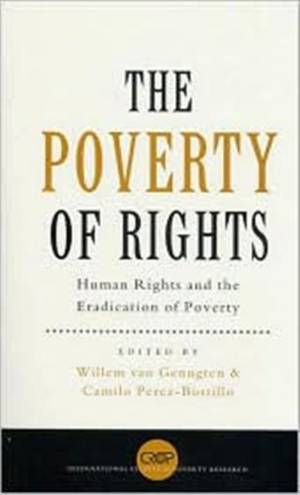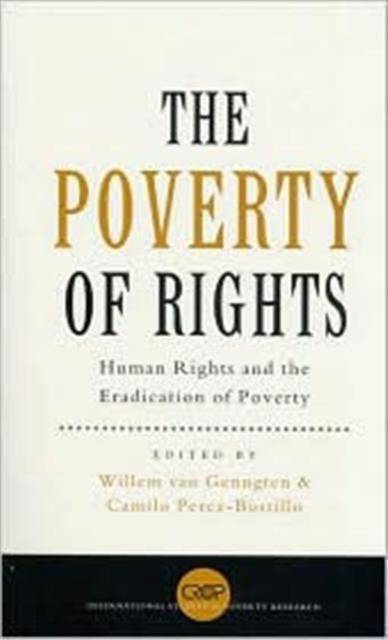
- Retrait gratuit dans votre magasin Club
- 7.000.000 titres dans notre catalogue
- Payer en toute sécurité
- Toujours un magasin près de chez vous
- Retrait gratuit dans votre magasin Club
- 7.000.0000 titres dans notre catalogue
- Payer en toute sécurité
- Toujours un magasin près de chez vous
The Poverty of Rights
Human Rights and the Eradication of Poverty
Description
Political leaders, social scientists and lawyers are nowadays paying more attention to two, not necessarily related, issues: concrete measures to reduce poverty and practical steps to respect human rights enshrined in international and national legal systems. The innovative contribution of this volume is its bringing together of these two questions. The authors, who are mainly Latin American, are deeply aware of their own continent's particular history vis-a-vis grave human rights violations on the one hand, and the coexistence of great wealth alongside immense inequality on the other. Law, they argue, is no panacea for the intractable problem of poverty. But it can be an indispensable basis for, and complement to, social mobilization, which, in turn, can be strengthened by certain kinds of socially engaged and critical social science. This is all the more so where economic, social and cultural rights are recognized as being just as important as the older agenda of civil and political entitlements. Vigorous advocacy of compliance with international human rights norms and explicit incorporation and actionability of such standards in national legal frameworks can then play a role in the struggle to reduce, and ultimately eradicate, global poverty and social injustice.
The contributors include lawyers and social scientists from a number of disciplines. Largely eschewing a set of country case studies, but paying particular attention to indigenous peoples and their struggles against poverty, they explore a range of important questions relating to the intersection of human rights and poverty, including the relatively new notion of the right to development. An important intellectual contribution breaking new ground in the political struggle to reduce world poverty.Spécifications
Parties prenantes
- Editeur:
Contenu
- Nombre de pages :
- 224
- Langue:
- Anglais
- Collection :
Caractéristiques
- EAN:
- 9781856499781
- Date de parution :
- 01-06-01
- Format:
- Livre broché
- Format numérique:
- Trade paperback (VS)
- Dimensions :
- 135 mm x 215 mm
- Poids :
- 254 g

Les avis
Nous publions uniquement les avis qui respectent les conditions requises. Consultez nos conditions pour les avis.





